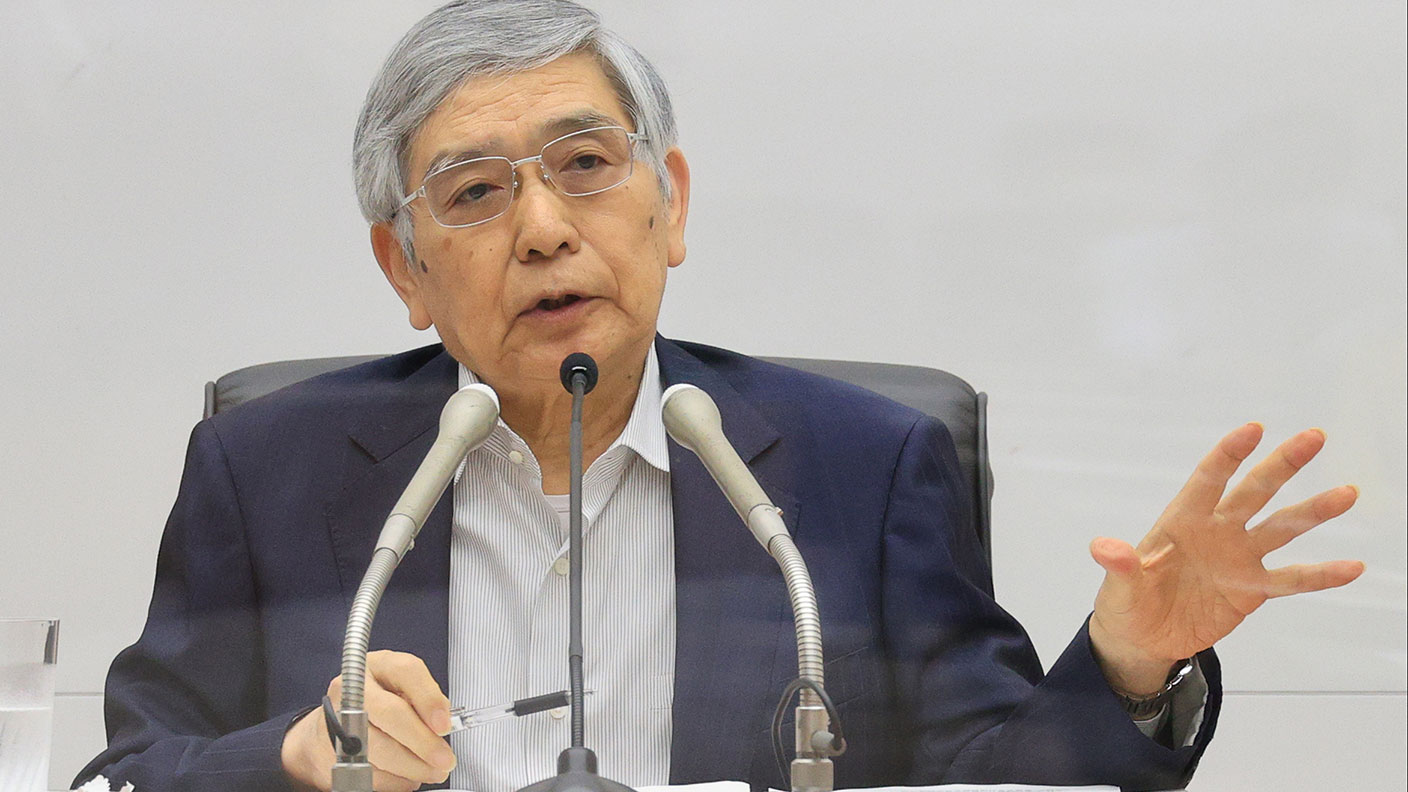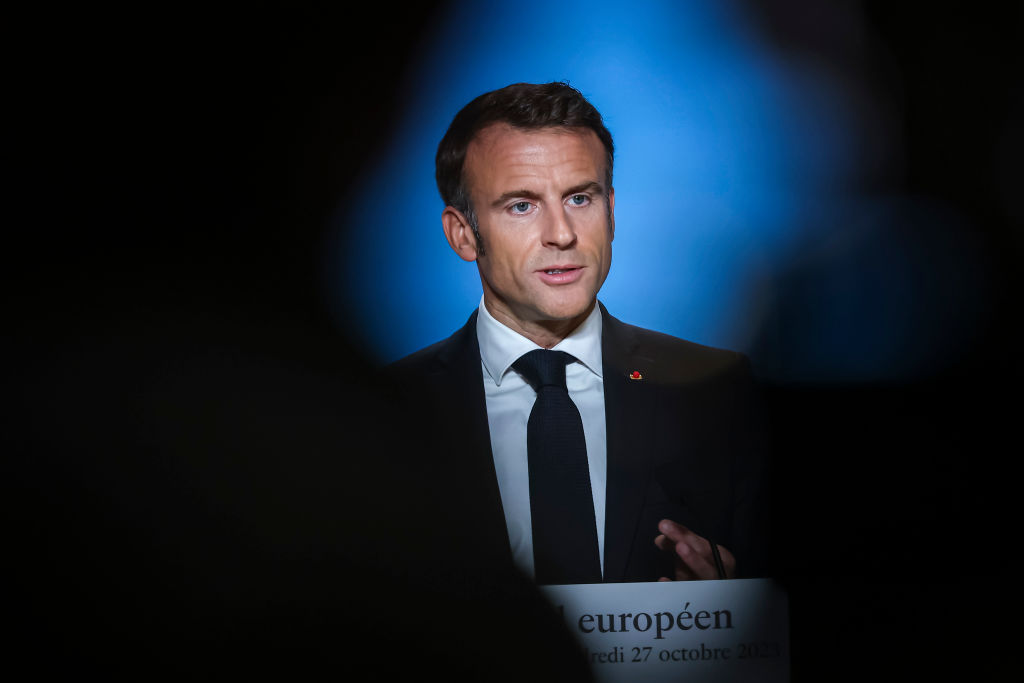The Bank of Japan is getting into industrial policy
The Bank of Japan has shrugged off its fig leaf of independence and is getting involved in fiscal policy. And won't be the only central bank to do so, says John Stepek. It's another step down the slippery slope we started on decades ago.


Get the latest financial news, insights and expert analysis from our award-winning MoneyWeek team, to help you understand what really matters when it comes to your finances.
You are now subscribed
Your newsletter sign-up was successful
Want to add more newsletters?
The most important divide in the governance structure of our secular era – the theoretical separation between independent central bank and state – is being eroded on a daily basis.
It’s growing ever harder to tell the difference between fiscal and monetary policy.
And that matters, because you get to vote on one of them, and you don’t get any say at all on the other.
Try 6 free issues of MoneyWeek today
Get unparalleled financial insight, analysis and expert opinion you can profit from.

Sign up to Money Morning
Don't miss the latest investment and personal finances news, market analysis, plus money-saving tips with our free twice-daily newsletter
Don't miss the latest investment and personal finances news, market analysis, plus money-saving tips with our free twice-daily newsletter
Once again, the Bank of Japan is leading the way.
Central banks are getting into industrial policy
The Bank of Japan is launching a “green” lending facility. The mechanism will be used to provide cheap funds to infrastructure (and other) projects that contribute to Japan becoming carbon neutral by 2050.
So how will this work? The Bank of Japan will offer interest-free funds to banks for “climate-linked loans or investments”, reports Bloomberg. There will be “no limit” to “rolling over the funding” – in other words, these are effectively permanent loans.
So commercial banks will have an incentive to make sure they are lending to “green” projects because they’ll get the money for nothing from the central bank, meaning they should be able to make bigger profit margins on their loans or investments. They’ll also get charged less for holding money with the central bank.
The Bank of Japan also said it will buy “green” bonds that are denominated in foreign currencies (it already buys overseas bonds).
This is a pretty interesting development. Central banks have been talking about getting involved in “green” finance for a while. The Bank of England has been told to take “green targets” into account when looking at which corporate bonds to buy. And the European Central Bank (ECB) has been talking along similar lines.
The idea here (as with ESG – environmental, social and governance – investing) is to drive up the cost of funding for companies that engage in carbon-intensive activity. In some ways, it’s a “nudge” along the lines of sin taxes.
However, this is also pretty controversial stuff. Central banks are (on paper) meant to be politically independent. That’s what monetary policy is all about: the central bank raises or lowers interest rates depending on the needs of the broad economy.
This is usually defined as keeping inflation at a certain level (usually 2%, a target basically invented by the New Zealand central bank in the late 1980s and then picked up by everyone else – Merryn reckons she found the paper they based it on, as we discussed in this podcast a month or so ago).
Once you start getting into the idea of favouring certain sectors or industries, that’s entering the political arena. That’s fiscal policy – making decisions about what to spend on, rather than simply the general level of money floating around the economy.
Indeed as, Germany’s Bundesbank boss Jens Weidmann – a perpetual thorn in the side of his more utopian-thinking ECB colleagues – argued before acquiescing, this move to make funding cheaper for “green” business is essentially a form of industrial policy, and that’s something the electorate should have a say in.
A giant green fig leaf
Of course, you can argue that a lot of this is pure semantics. The central bank derives all of its power and authority from the government, as well as its mandate, so the idea that they are in any way politically independent is nothing more than a fig leaf. But those things matter too.
On the one hand, in practical terms, it is 100% true to say that the Bank of England is just an arm of the government, and that when it buys gilts using quantitative easing (QE), it’s exactly like the government writing a cheque to itself.
On the other hand, one of the reasons this can happen without everyone freaking out about it is because we mostly accept that there are enough institutional checks and balances to prevent a government from using this money-magicking ability to do anything stupid, and to avoid relying on it in all but the most dire circumstances.
So you can do it after a financial crisis and you can do it after a pandemic, but you probably should try to avoid doing it for the rest of the time.
Of course, the trouble is that emergency measures have a habit of becoming permanent fixtures, particularly when any negative consequences are not immediately obvious. We’ve already seen that with QE (if it hasn’t caused hyperinflation yet, then why worry about doing more?), and we may see it with masks.
So the increasing politicisation of central banks is just another step down a slippery slope we embarked on decades ago.
How is the Bank of Japan justifying this? As always, there’s an emergency reason for it all. “Climate change could exert an extremely large impact on developments in economic activity and prices as well as financial conditions from a medium- to long-term perspective.”
This is all true (and true of many more potential future events that aren’t climate change) but it is also a very good example of a very large fig leaf indeed.
What constitutes a green project? We don’t know, because we now face too much of an emergency to spend time arguing about the framework, apparently. Is it really such great policy to be driving up the cost of our main energy sources when we don’t really know if we have effective replacements yet? Sorry, it’s an emergency; don’t have time to talk about that.
In some ways though, these are in themselves all side issues. It’s clear that the next step is to go from preferential interest rates for green projects to the central banks directly funding them, because it’s an emergency. That step will come if and when it turns out that we still have sclerotic growth even in the wake of all the latest post-pandemic upheaval.
At that point, it’ll be all about using the green infrastructure “emergency” to “stimulate” the economy, by building solar-powered monorails to nowhere rather than roads to nowhere or airfields that will never be used.
Anyway – central bank mission creep is just yet another reason why I expect the ultimate denouement of this cycle to be inflationary rather than deflationary. As for the investment impact – that’s worth keeping an eye on.
On the one hand, more money piling into green projects does suggest a “green” bubble will be very likely at some point. On the other, a side-effect of raising the cost of capital for fossil fuel companies is to also raise the return that investors expect (higher risk means higher returns). So stick with your oil companies for just now. We’ll have more on green bubble candidates in upcoming issues of MoneyWeek magazine. Get your first six issues free here.
Get the latest financial news, insights and expert analysis from our award-winning MoneyWeek team, to help you understand what really matters when it comes to your finances.

-
 What do rising oil prices mean for you?
What do rising oil prices mean for you?As conflict in the Middle East sparks an increase in the price of oil, will you see petrol and energy bills go up?
-
 Rachel Reeves's Spring Statement – live analysis and commentary
Rachel Reeves's Spring Statement – live analysis and commentaryChancellor Rachel Reeves will deliver her Spring Statement on 3 March. What can we expect in the speech?
-
 How have central banks evolved in the last century – and are they still fit for purpose?
How have central banks evolved in the last century – and are they still fit for purpose?The rise to power and dominance of the central banks has been a key theme in MoneyWeek in its 25 years. Has their rule been benign?
-
 Do we need central banks, or is it time to privatise money?
Do we need central banks, or is it time to privatise money?Analysis Free banking is one alternative to central banks, but would switching to a radical new system be worth the risk?
-
 The French economy's Macron bubble is bursting
The French economy's Macron bubble is burstingCheap debt and a luxury boom have flattered the French economy. That streak of luck is running out.
-
 The Bank of England can’t afford to hike interest rates again
The Bank of England can’t afford to hike interest rates againWith inflation falling, the cost of borrowing rising and the economy heading into an election year, the Bank of England can’t afford to increase interest rates again.
-
 UK wages grow at a record pace
UK wages grow at a record paceThe latest UK wages data will add pressure on the BoE to push interest rates even higher.
-
 Trapped in a time of zombie government
Trapped in a time of zombie governmentIt’s not just companies that are eking out an existence, says Max King. The state is in the twilight zone too.
-
 America is in deep denial over debt
America is in deep denial over debtThe downgrade in America’s credit rating was much criticised by the US government, says Alex Rankine. But was it a long time coming?
-
 UK economy avoids stagnation with surprise growth
UK economy avoids stagnation with surprise growthGross domestic product increased by 0.2% in the second quarter and by 0.5% in June